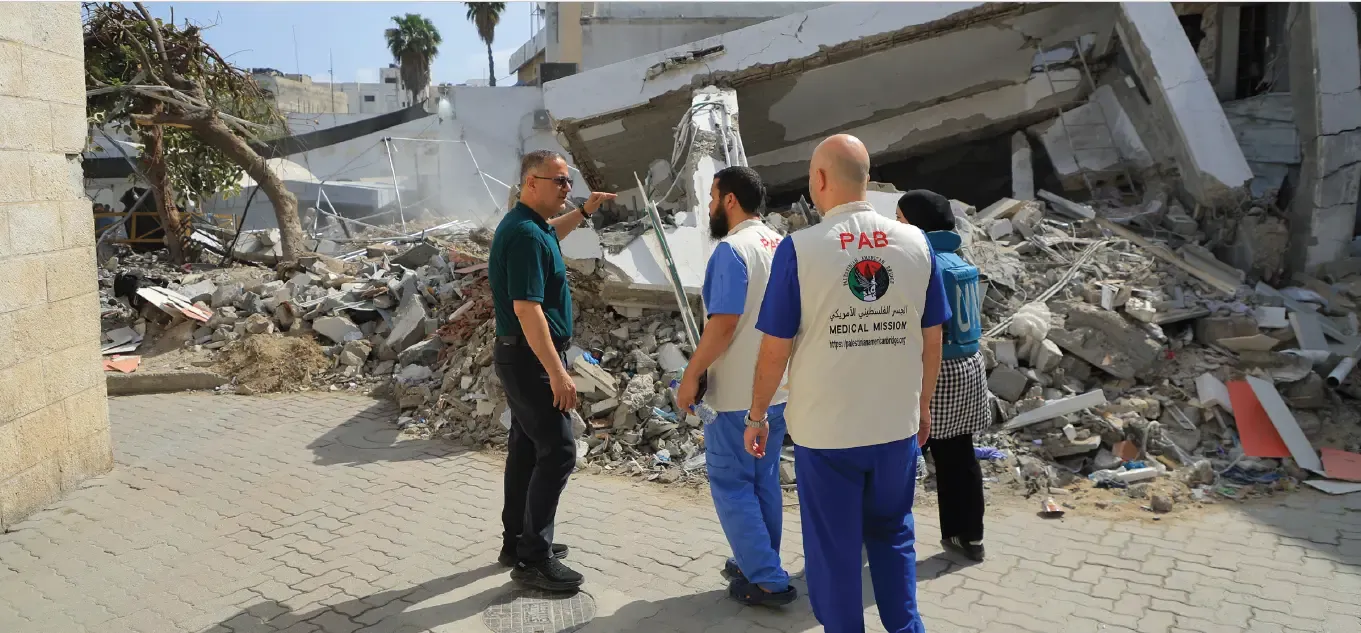Limited health interventions in Gaza - new WHO report highlights serious obstacles

The research group Global Disaster Medicine – Health Needs and Response has been commissioned by the Swedish National Board of Health and Welfare to monitor and analyse global disasters. This includes providing expert support during crises and serving as a resource for Swedish authorities. A new WHO report, based on data and testimonies from healthcare workers in the field, shows that medical efforts in Gaza during spring have been severely hampered by blockades, attacks, and entry restricttions
Serious resource shortages and worsening security situation
The WHO report Impact of supply shortages, security constraints, and entry procedures on EMT operations in Gaza documents that the conditions for Emergency Medical Teams (EMTs) to work in Gaza during the period March to May 2025 have been very limited.
Since the ceasefire broke down on 18 March, a total blockade of humanitarian aid, including medical supplies, has lasted for over 80 days. By the end of May, 56 per cent of health centres' stocks of basic supplies were completely exhausted. EMTs report being forced to ration basic supplies, such as wound dressings and sterile equipment for post-operative care.
At the same time, the security situation has deteriorated sharply. WHO reports 56 attacks on health facilities and ambulance operations since 18 March. This has put patients and health workers at great risk, and in some cases international escorts are required to transport patients.
Support to the WHO and commitment to the protection of healthcare
The research team contributes to WHO's work on Emergency Medical Teams through research, evaluation, training, mentoring and classification of medical teams. EMTs are a global initiative coordinated by WHO and includes over 40 medical teams worldwide. It aims to rapidly mobilise skilled responses to disasters to relieve the pressure on local healthcare systems.
Group leader Johan von Schreeb, professor of Disaster Medicine, was instrumental in initiating the EMT work after the 2010 Haiti earthquake and has contributed to the development of several of the initiative's policy documents.
Raising awareness of threats to health care
The documented attacks on health services in Gaza are part of a broader trend of increasing violence against health facilities in armed conflicts. This has also been highlighted by the Centre for Health Crises at Karolinska Institutet and Médecins Sans Frontières Sweden.
Together, they organised a demonstration outside the Ministry for Foreign Affairs, which has led to a discussion on the issue being planned with the Minister for Foreign Affairs, Maria Malmer Stenergard, in the autumn.
An unprecedented situation
The WHO report describes how the prolonged blockade of medical supplies, combined with recurrent attacks on health facilities, has led to an unprecedented situation.
The consequences for the population's access to life-saving care are severe, and the report emphasises the need for immediate action to protect health services in conflicts.
Statements in media
On the group's media page, you can read analyses and statements from researchers at Karolinska Institutet who have commented on developments in Gaza and other humanitarian crises.
